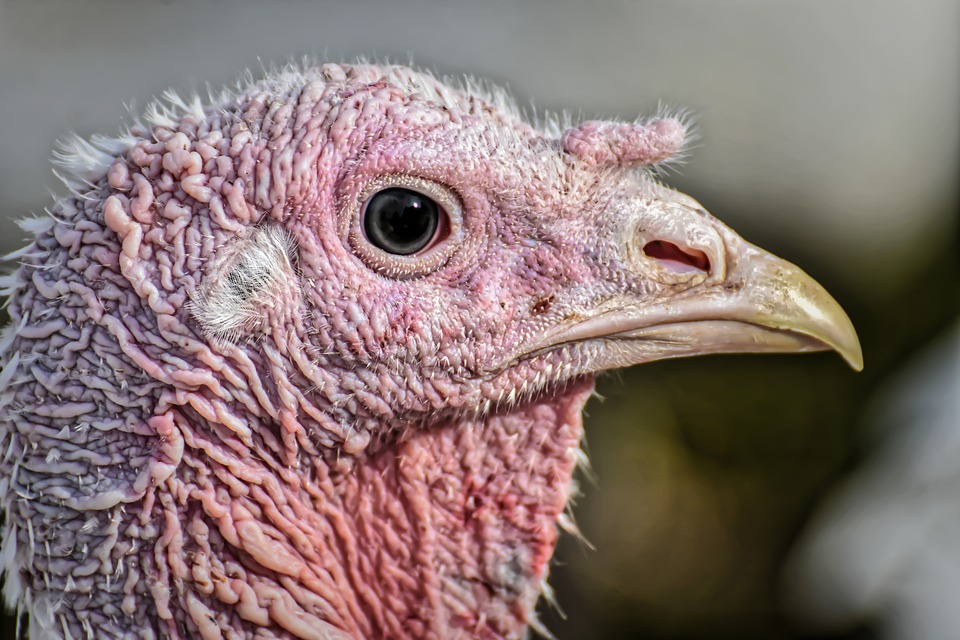Turkeys Don’t Eat Cigarette Butts (And Why Google Isn’t Perfect Yet)
Recently, the Relay office spent an afternoon debating whether or not turkeys eat cigarette butts off the side of the road.
Don’t worry, it’s not as dumb as it sounds—it’s far dumber. Here’s the deal: Near St. Louis, you’ll often see wild turkeys walking along the side of the highway.
Around Thanksgiving, one of our partners suggested that the turkeys were looking for cigarette butts. He’d heard that turkeys get addicted to nicotine, so they frequent highways to feed their addiction.
I’d heard something similar from a friend of mine, but it didn’t seem too likely. We did a quick Google search to settle the issue, but we ran into a problem: Typing any combination of “turkey,” “nicotine,” “cigarette butts,” or “addiction” brought up hundreds of websites about quitting smoking cold turkey.
That’s useful info, but it wasn’t what we were looking for. We tried searching for scientific papers about birds and nicotine addiction, but didn’t find anything about turkeys specifically. Frustrated, we contacted the National Wild Turkey Foundation and received a quick response from biologist John Burk.

Credit: Alexas_Fotos / Pixabay
“I have been working as a Wildlife Biologist focused on wild turkeys for 30 years in 5 different states, and I can honestly say that I have never heard of this being a problem,” he wrote. “Turkeys have no sense of smell and therefore also no sense of taste.”
Burk went on to explain that turkeys have gizzards, and they walk on the side of the road to find small pieces of gravel that can help them digest their food. If a bird ate a cigarette butt by mistake, it would spit it out, since the experience wouldn’t be pleasant.
That would seem to settle the issue, but by this point, office alliances had formed, and the “turkeys are addicts” crowd wasn’t going to go down without a fight. For a second opinion, we reached out to the Illinois Department of Natural Resources, which put us in touch with another biologist.
After laughing at us for several minutes, he agreed with his contemporary.
“People have been dissecting turkeys for over 30 years,” he said. “We’ve never seen a cigarette butt. While I cannot say with certainty that a turkey has never eaten a cigarette, there certainly isn’t a significant population of nicotine-addicted turkeys out there.”
There you have it: Turkeys don’t eat cigarette butts, or if they do, they don’t do it on purpose.
What Turkeys Can Teach Us About SEO And Messaging
After trying in vain to get one of our clients to run a blog about turkeys and nicotine addiction, I realized that there is a tangible SEO lesson here: Google’s semantic search isn’t there yet.
Semantic search attempts to match a searcher’s intent with the results; if you search for “dog training tips” all afternoon and suddenly search for “pet food,” for instance, the search engine will likely present dog food as one of the top results (rather than, say, cat food, or turkey food).
For the most part, it works well, and semantic search is a crucial part of our strategy. We tell clients not to focus on individual keywords, since the semantic profile of a page—the page’s tendency to use related terms and synonyms that appeal to the searcher’s intent—is more important.
But search for “turkey” and “nicotine,” and you’ll inevitably get pages about “quitting cigarettes cold turkey.” Even if you perform a long-tail search (for instance, “Do turkeys in Illinois eat cigarette butts on the side of the highway because they are addicted to nicotine”), the semantic link between “turkey,” “cigarette,” and “human smoking” is too strong.
The lesson is to be careful when branding. Think about how keywords interact. Consider whether you’re using phrases that could be misinterpreted by semantic search—and when that’s the case, be ready to change your strategy. When in doubt, create as much content geared specifically towards your audience as possible.
Another crucial lesson: Don’t spend all afternoon arguing about turkeys, or you’ll have to write a blog about it to justify the lost productivity.
1 comment so far
St. Louis SEO Guide: Developing A Content Strategy For A Small Business – Relay Online MarketingPosted on5:15 pm - Mar 11, 2020
[…] doesn’t mean that you can’t get creative. I wrote a blog about turkeys eating cigarette butts, which managed to get some traffic…but only because the […]
About the author